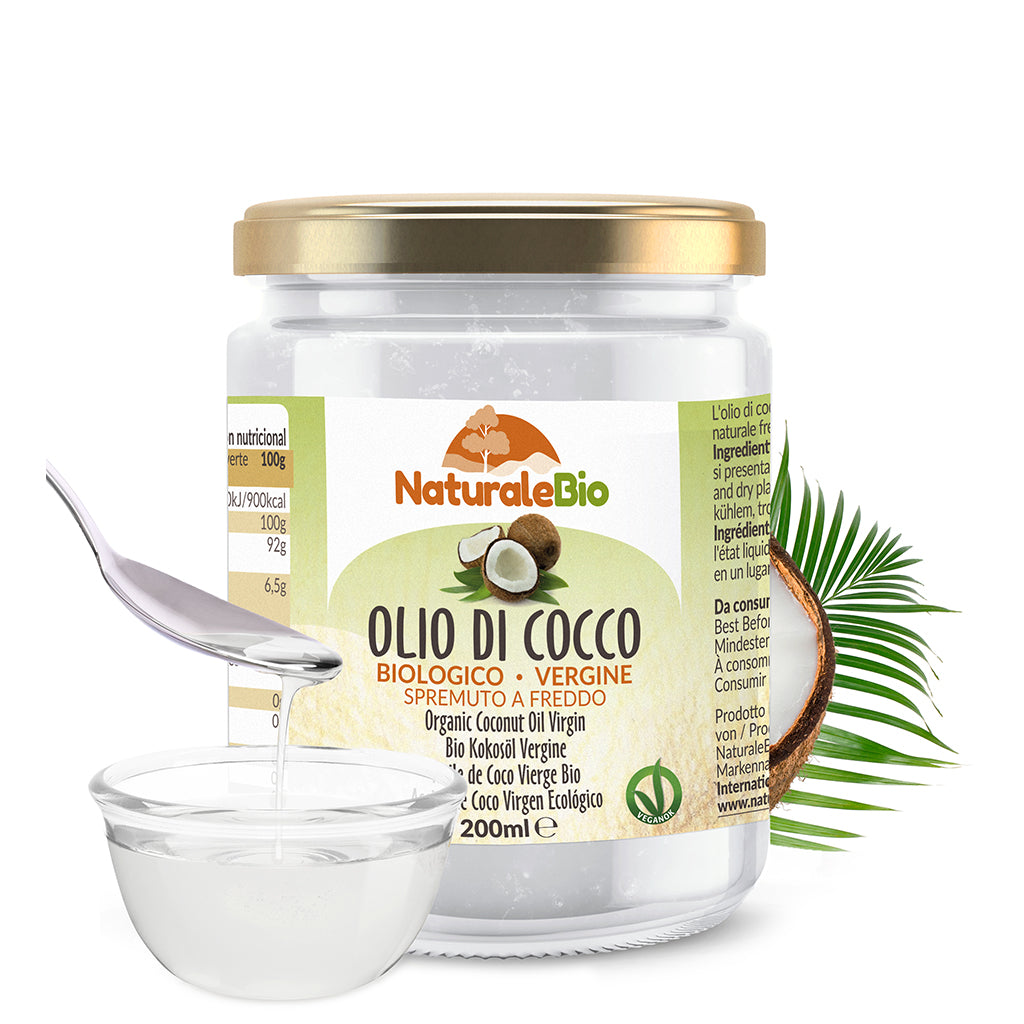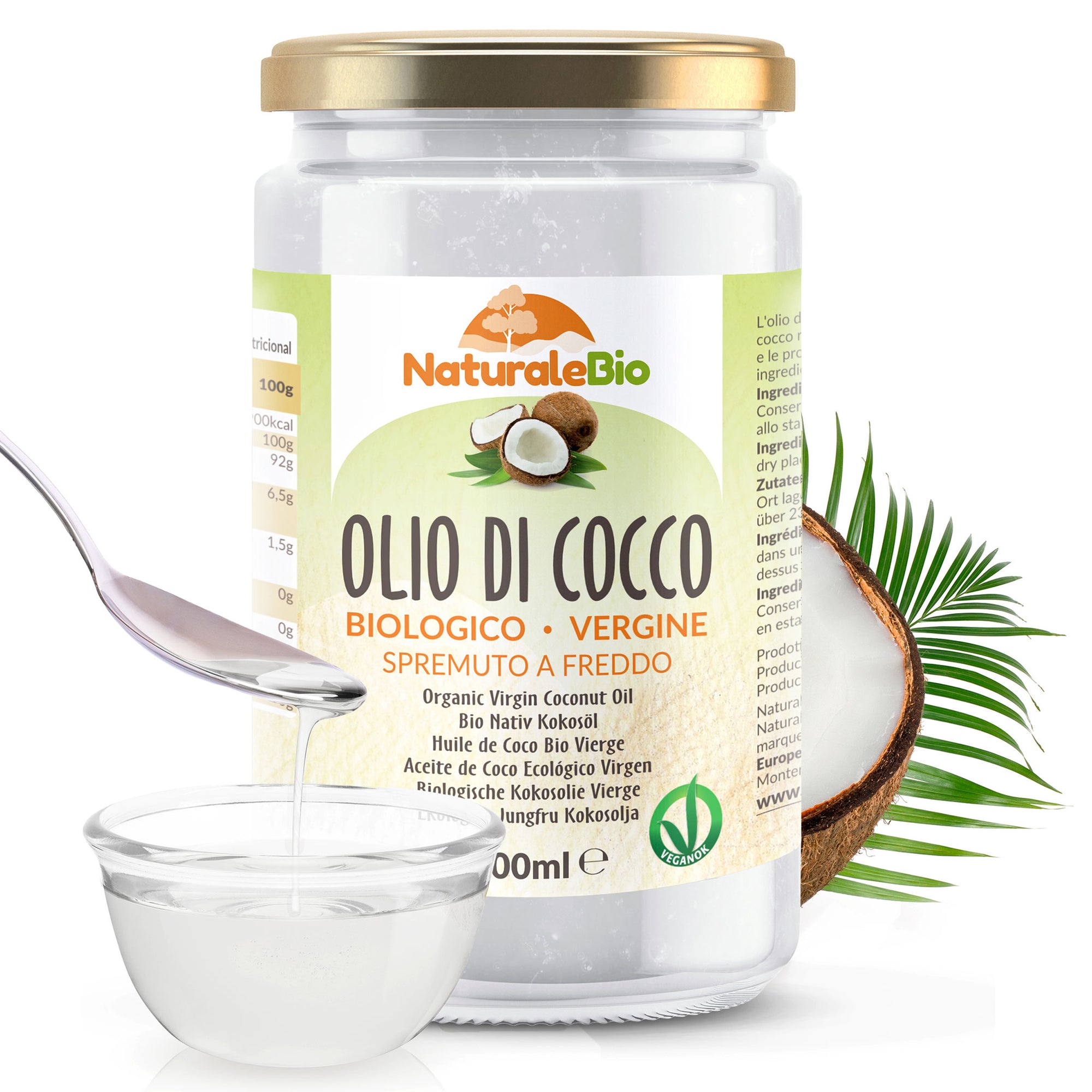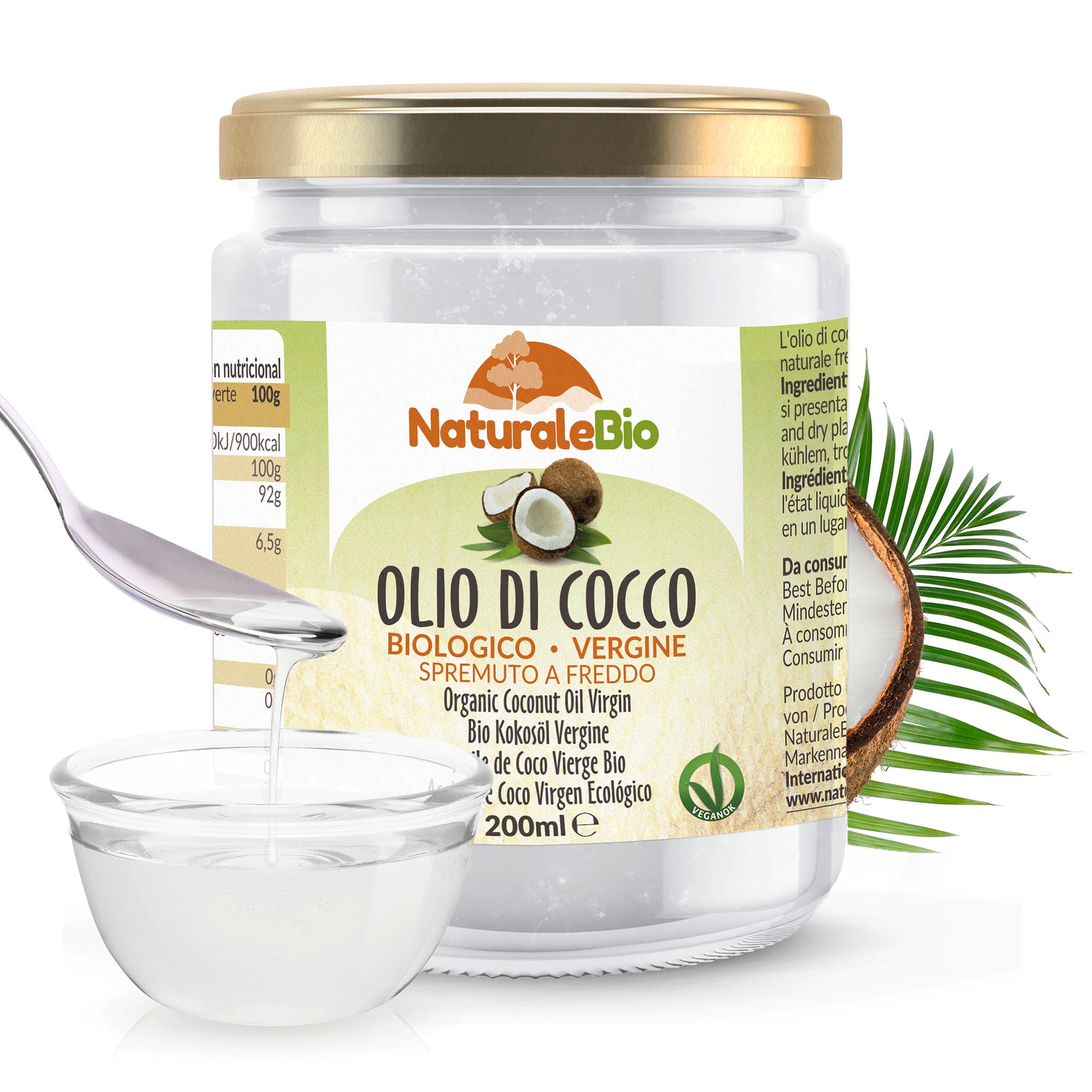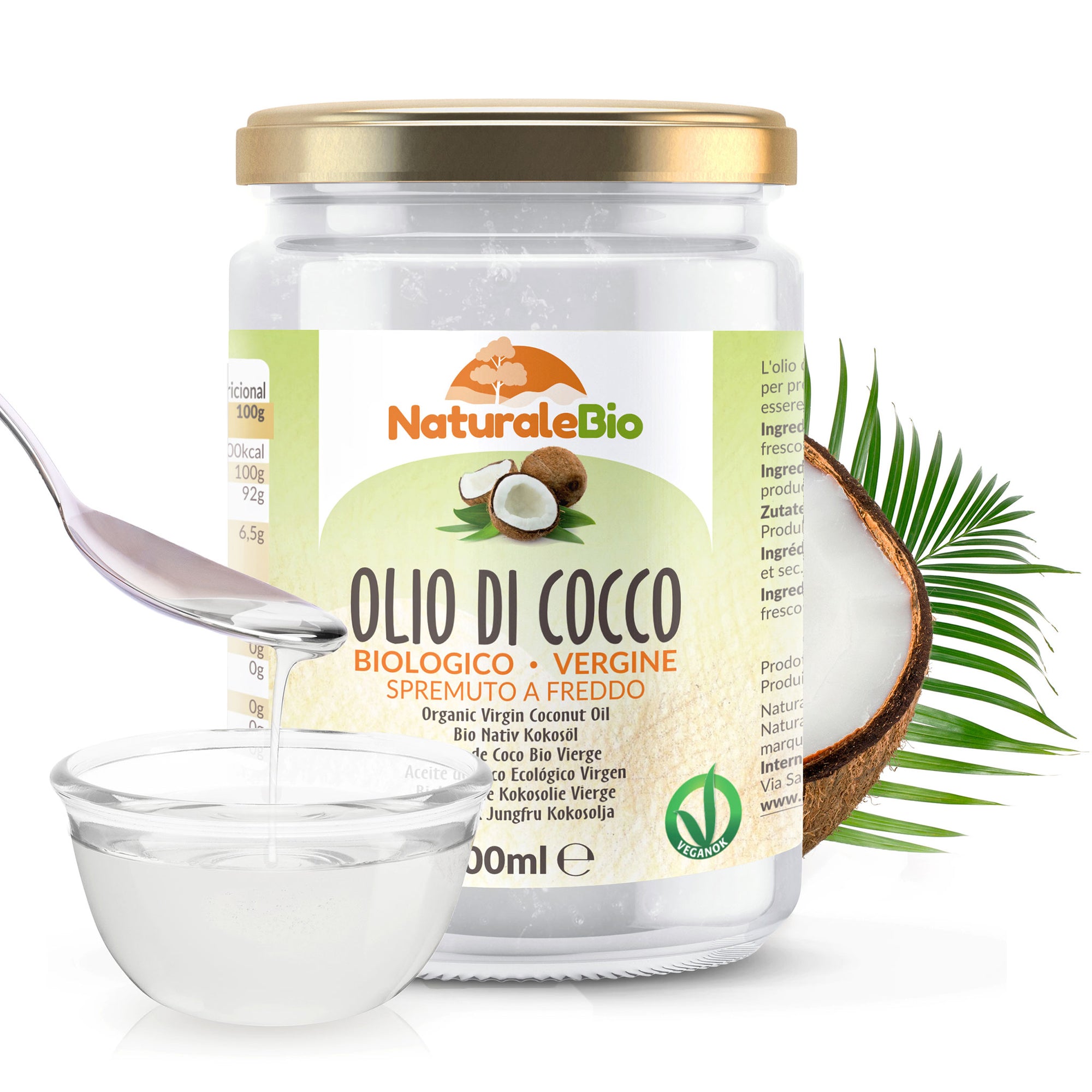
Coconut Oil: Properties, Benefits, and Uses
Coconut oil is a versatile product with a vast array of uses and multiple beneficial properties.
Let's delve into what makes this oil so special.
The Chemistry of Fats
Coconut oil is one of the richest sources of saturated fats, with almost 90% of its fatty acids being saturated. However, its chemical composition is very different from the saturated fats found in meat and dairy.
Coconut oil contains medium-chain triglycerides (MCTs), unlike most animal and vegetable fats, which are long-chain fatty acids and are metabolized differently. Fats are our primary source of energy, but medium-chain fatty acids are digested differently from other fats. Instead of being stored, the liver converts them directly into ketones, available as energy for cells. When glucose in the body is depleted, cells can use ketones as survival fuel. Ketones may be important in treating certain brain disorders.
Coconut Oil and Health
It's no coincidence that populations in regions where coconut oil is a staple in the diet are healthier both inside and out. One of the largest producers of coconut oil is Sri Lanka.
Its climate is perfect for the growth of numerous plantations, with palms growing by the sea, granting the oil higher quality. Numerous studies have been conducted in Southeast Asia on the relationship between coconut oil consumption and health. Many studies by agronomist P.K. Thampan in countries with high coconut oil consumption show that populations maintain normal cholesterol levels, with higher levels of HDL (good cholesterol) compared to LDL (bad cholesterol). Another study by Ian Prior on the Polynesian atolls of Pukapuka and Tokelau, where coconut oil is a major fat source in the diet, shows very low incidence of cardiovascular diseases and normal cholesterol levels.
Weight Loss
Clinical studies have shown that consuming medium-chain triglycerides (MCTs) leads to greater energy expenditure compared to long-chain triglycerides. These studies suggest that consuming MCTs in coconut oil may be useful for weight management.
Antimicrobial Properties
Coconut oil may help prevent diseases or mitigate their negative effects. Most medium-chain fatty acids have antimicrobial properties. Among them, lauric acid is very effective and is the most abundant in coconut oil. When we consume any fat, its triglycerides break down, sometimes forming a monoglyceride. The monoglyceride formed from coconut oil's medium-chain fats is monolaurin. Additionally, coconut oil's antimicrobial properties extend to the skin. It can be used, for instance, to combat acne and aid wound healing.
Coconut Oil and Yeast Infections
Coconut oil can protect the gut flora. Our bodies have "friendly" bacteria necessary for health. These bacteria aid in digestion and produce substances that reduce yeast levels in the body. Coconut oil's fats help protect against Candida Albicans, a type of yeast that can live in small colonies around the oral cavity, gastrointestinal tract, and female genital tract.
Coconut Oil’s Healing Properties for Peptic Ulcers
It was once thought that stress was the main cause of ulcers. While stress can be a significant cofactor, Helicobacter pylori has been shown to be the major cause of chronic gastritis and 90% of peptic ulcers. Coconut oil’s antimicrobial and antibacterial properties make it effective for chronic gastritis and peptic ulcers.
Coconut Oil and Free Radicals
Coconut oil can protect against damage caused by free radicals, thus preventing signs of aging. Free radicals are unstable molecules that can cause unwanted chemical reactions in our bodies. Coconut oil, being a stable fat, is not damaged by free radicals. Consuming coconut oil can mitigate the damage caused by unstable molecules and unlock its full anti-aging potential.
Oral Hygiene
Another important and healthy use of coconut oil is oil pulling, an Ayurvedic technique for oral hygiene. Using coconut oil as a mouthwash for about 20 minutes daily can eliminate harmful bacteria, improve oral health, and prevent bad breath.
Coconut Oil Reduces Appetite
Coconut oil can help us eat less. The appetite reduction is related to how the fatty acids in coconut oil are metabolized. Ketones, a byproduct of this metabolism, have an appetite-reducing effect.
Coconut Oil’s Beneficial Properties on Cholesterol
Cholesterol and fat are distinct but often mistakenly used interchangeably. Cholesterol is considered negative due to its frequent association with heart disease. However, a healthy individual can produce the necessary amount of cholesterol for proper bodily function, as it is essential for the structure of cell membranes. Coconut oil can positively influence important risk factors, including cholesterol.
Coconut Oil’s Beneficial Properties for Hair, Skin, and Oral Hygiene
Coconut oil’s benefits extend beyond internal health, improving skin and hair appearance. To enhance hair beauty and health, apply it directly to damp hair before washing for 30-60 minutes. Additionally, coconut oil is a fantastic natural alternative to expensive and ineffective moisturizers and lotions often containing chemicals. Coconut oil is a powerful moisturizer for skin and hair care.
Reduction of Harmful Fat
Coconut oil may help reduce white adipose tissue deposits, the subcutaneous fat that accumulates in the abdominal area. A study conducted in Spain in 1998 showed that enriching the diet of lab mice with coconut oil stimulated a cellular component called UCP1 (uncoupling protein), capable of converting food into energy. Thus, coconut oil helped reduce fat deposits in these small mammals.






0 comments